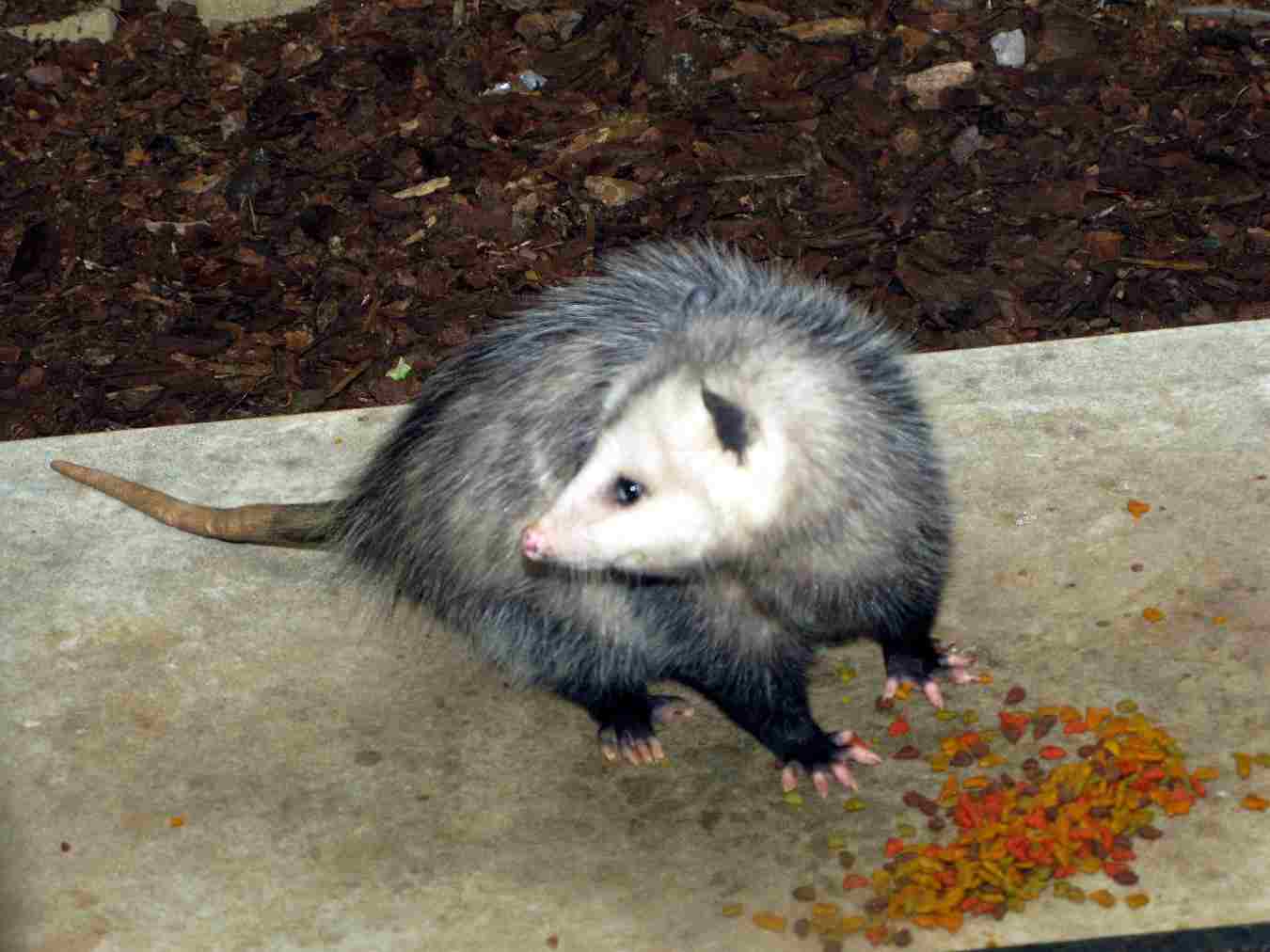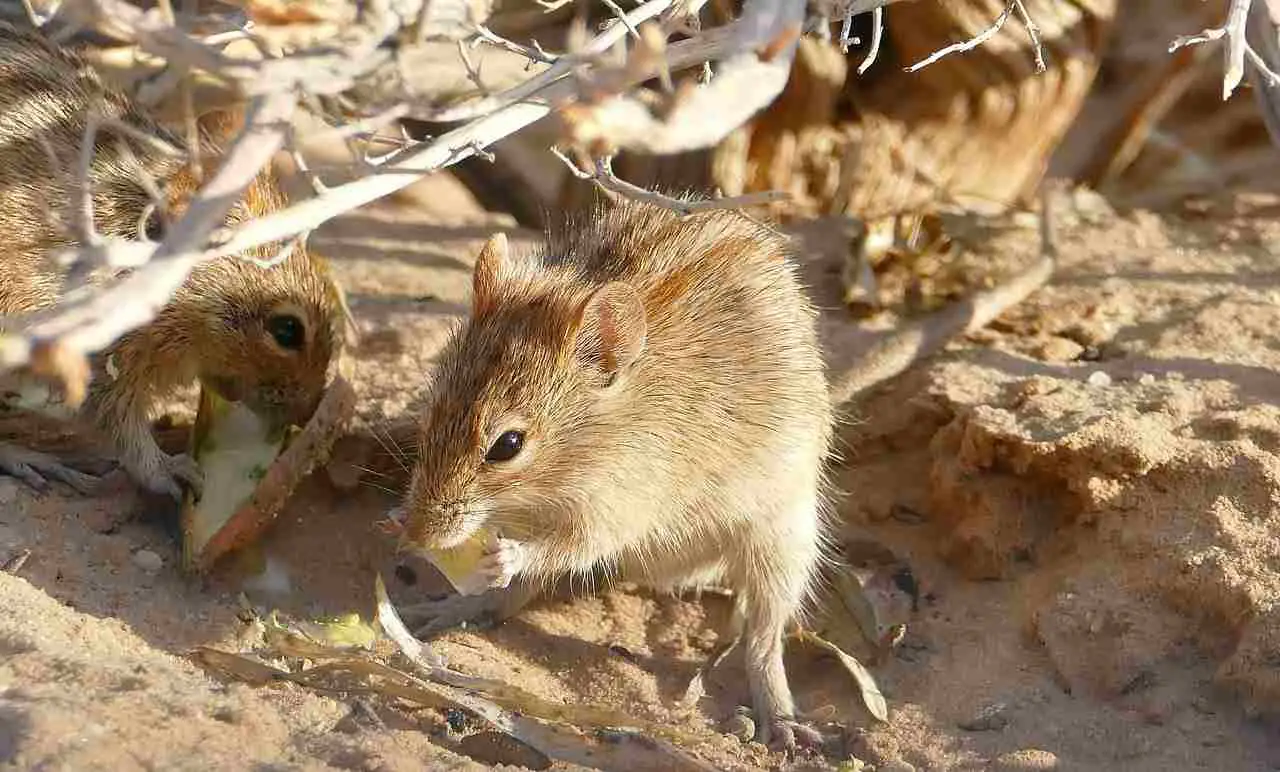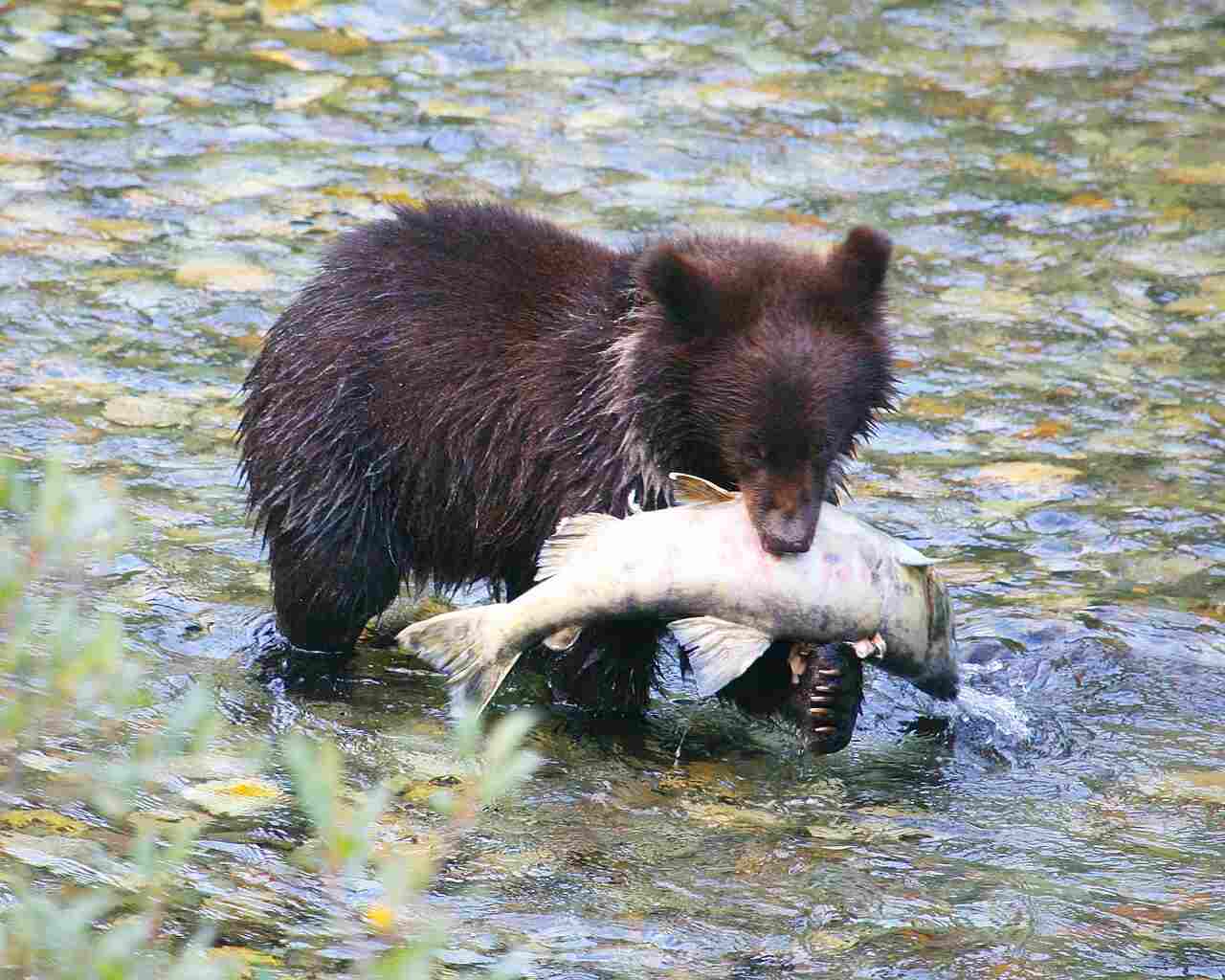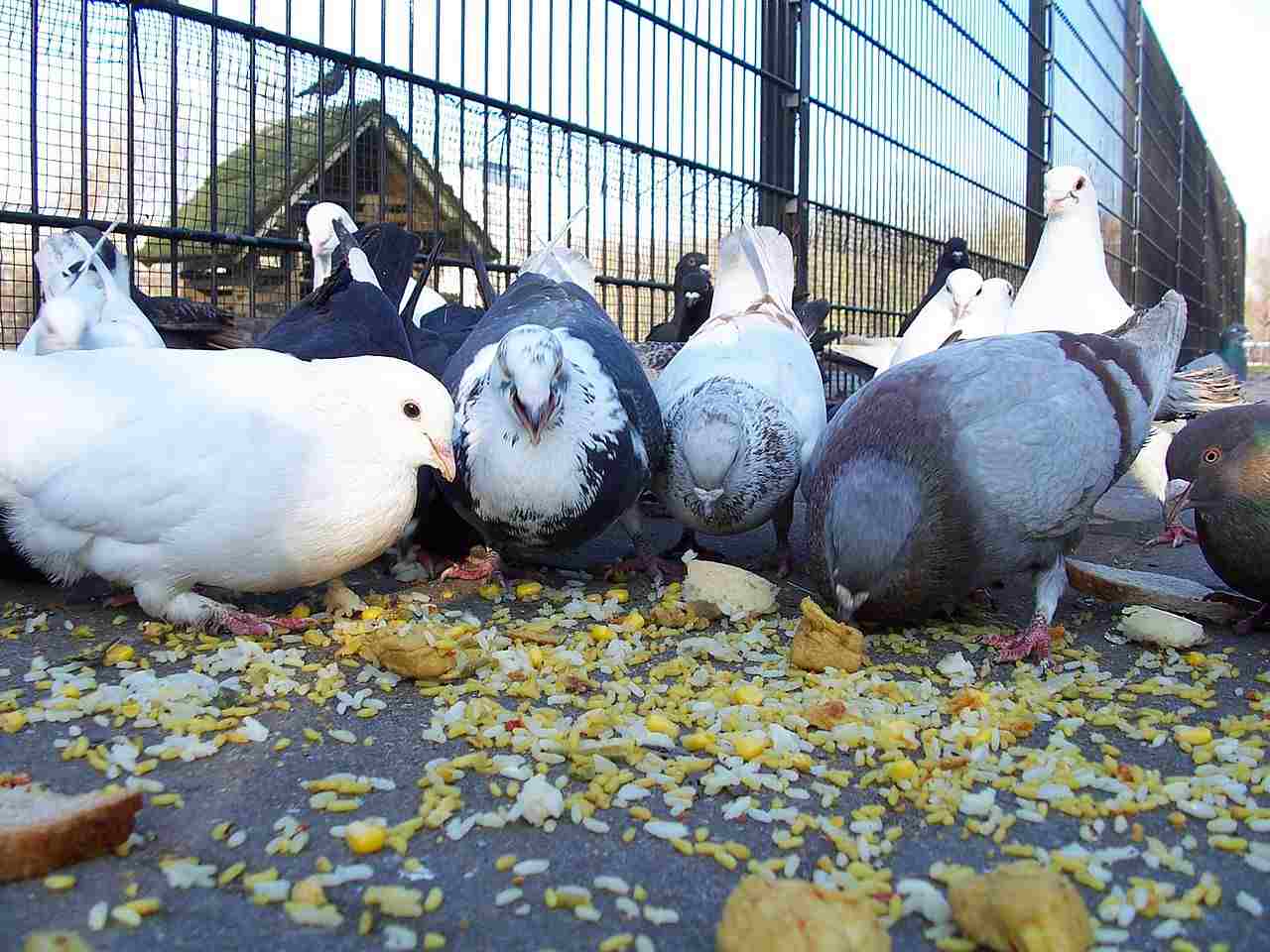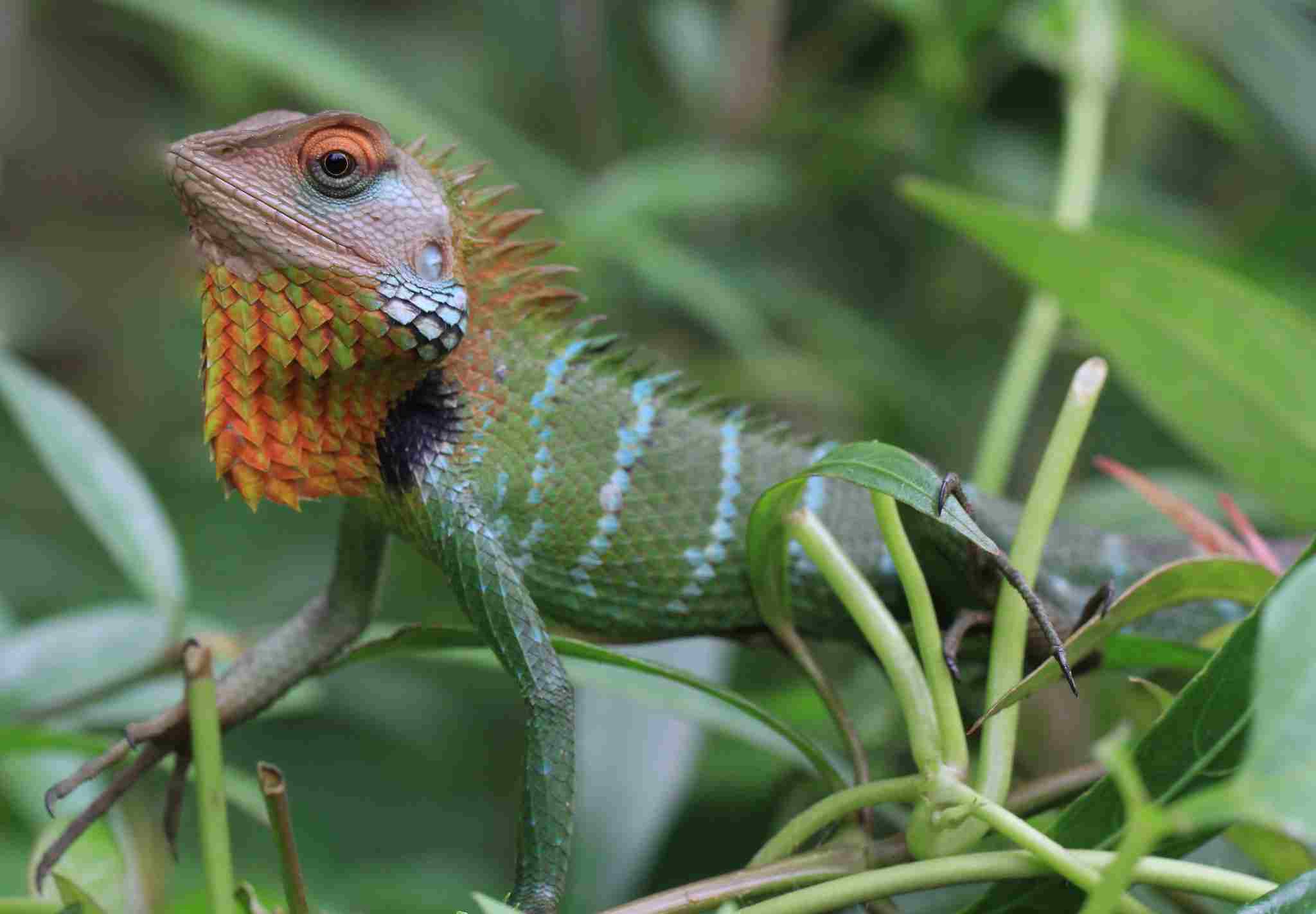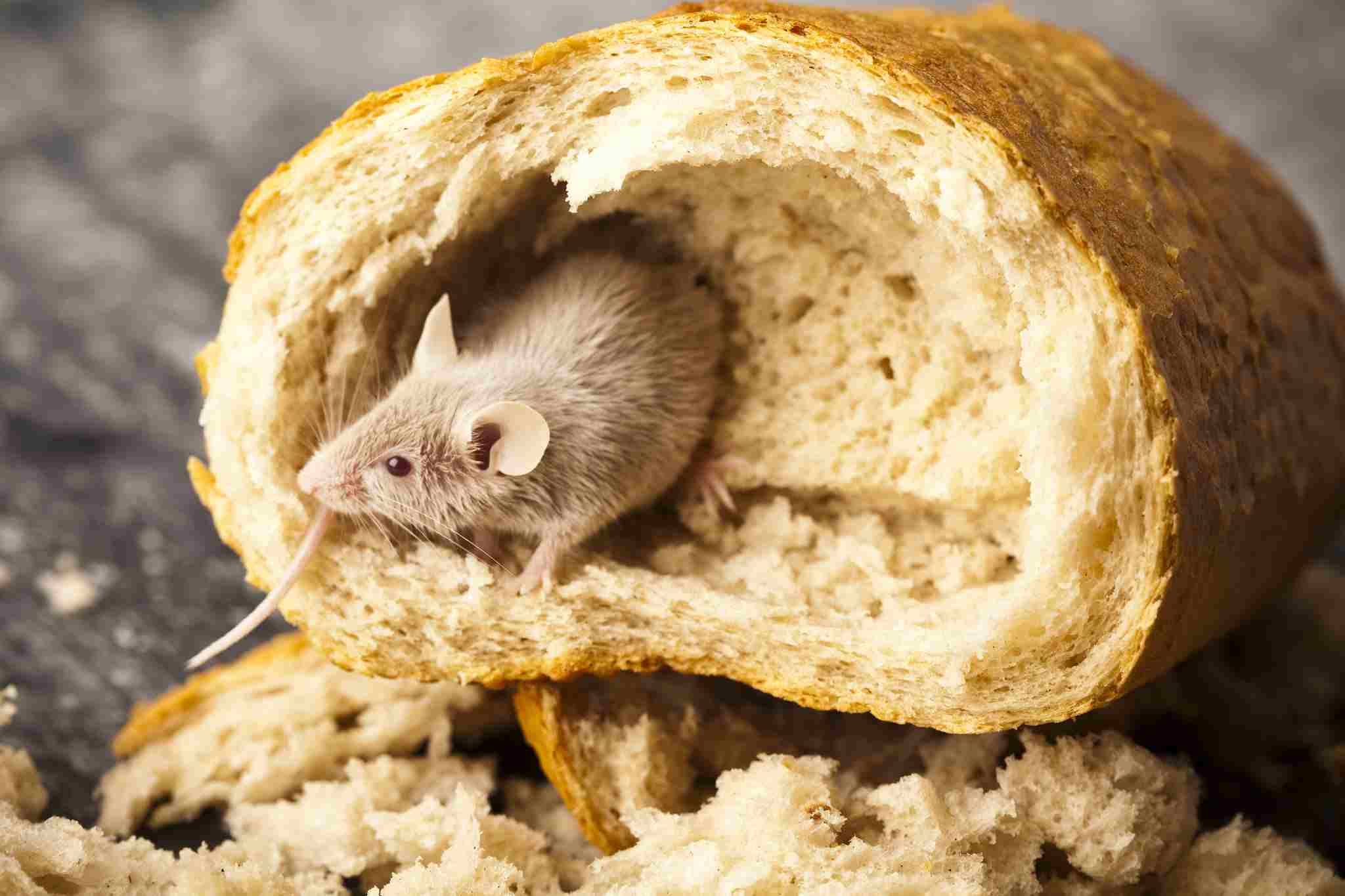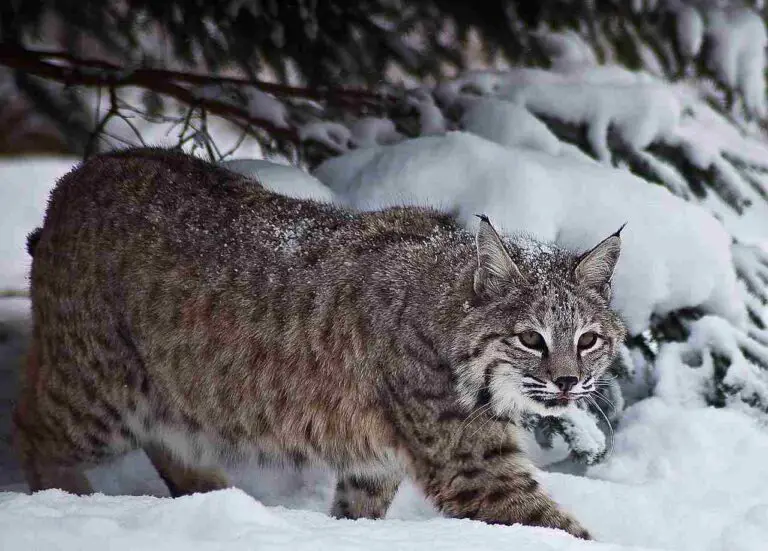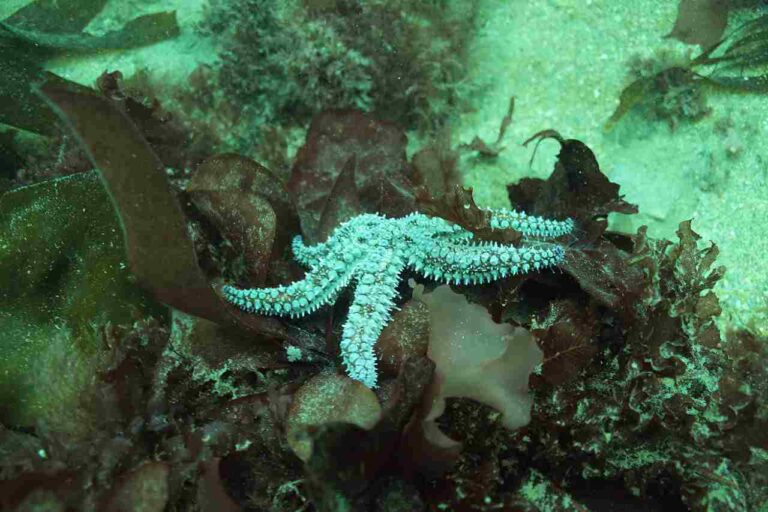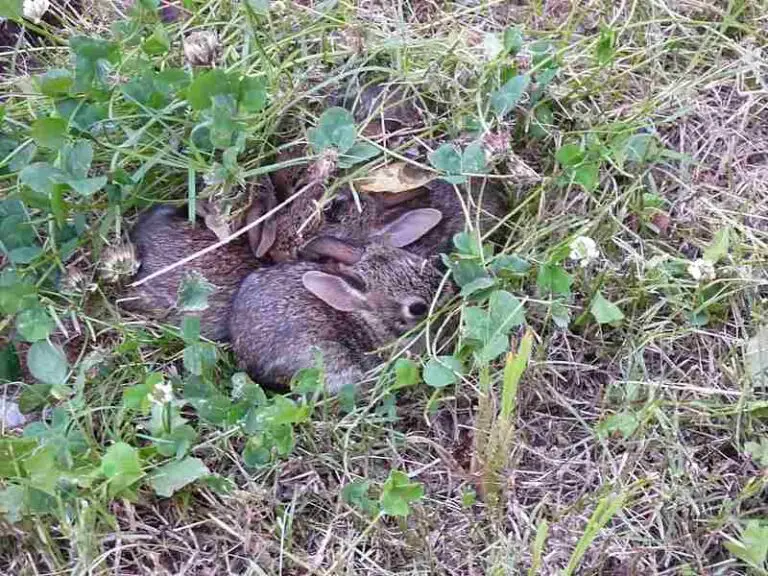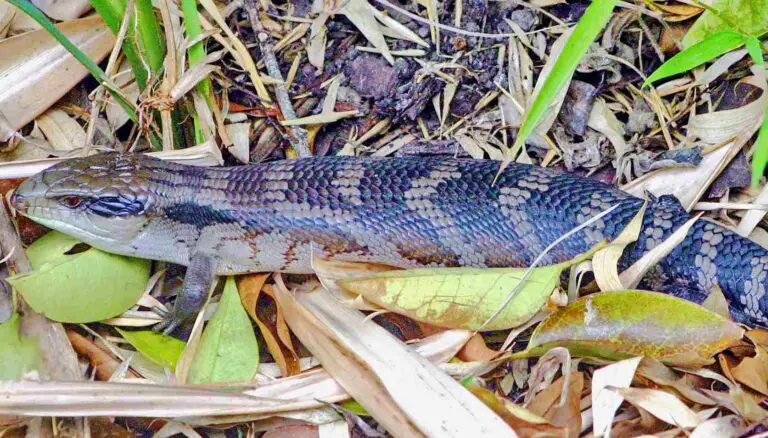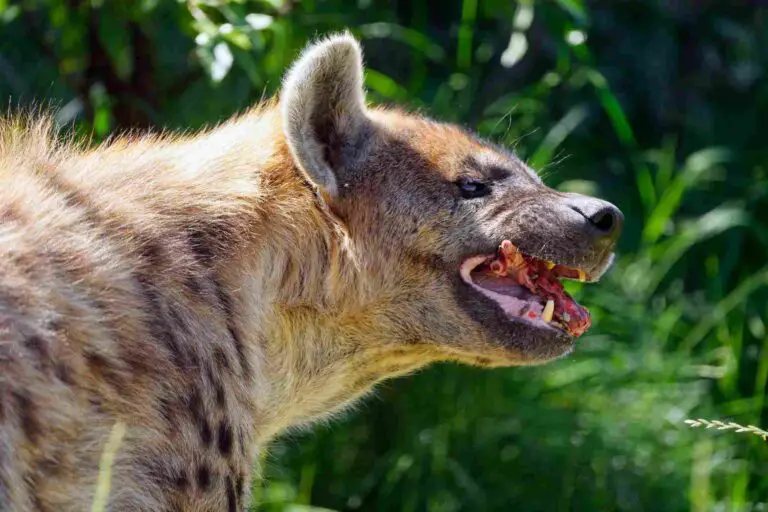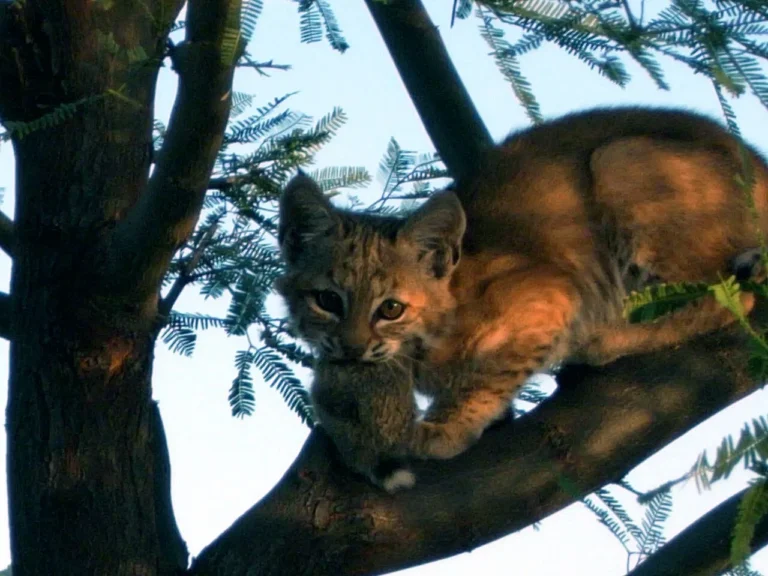Are Squirrels Omnivores? Feeding Behavior of Squirrels Discussed
Most squirrels are omnivorous due to their opportunistic nature, and can be found consuming plant materials like nuts, roots, berries, foliage; as well as animal prey like small amphibians, reptiles and several invertebrates.
This article discusses the feeding behavior of squirrels and answers some related questions.
Reasons Why Squirrels are Omnivores
1. They Consume Both Plant and Animal Matter
Squirrels exhibit a diverse range of feeding behaviors. One of the main reasons why squirrels are considered omnivores is because they consume both plant and animal matter. This ability to adapt their diet allows them to thrive in various environments and ensures their survival even when food sources are limited.
Squirrels have a wide-ranging diet that includes nuts, seeds, fruits, berries, fungi, insects, eggs, and even small vertebrates. They are known to forage for food in trees, on the ground, and even in bird feeders. This versatility in their feeding habits is a clear indication of their omnivorous nature.
By consuming both plant and animal matter, squirrels are able to take advantage of the nutritional benefits offered by each food source. Plant matter provides them with essential carbohydrates, fiber, and vitamins, while animal matter, such as insects and eggs, offers them a rich source of protein and fats. This balanced diet ensures that squirrels have access to a wide range of nutrients necessary for their growth, reproduction, and overall health.
Squirrels are opportunistic feeders, meaning they take advantage of whatever food sources are available to them. This adaptability is crucial for their survival, especially in environments where food resources may be scarce or unpredictable. By being able to consume both plant and animal matter, squirrels can make the most of their surroundings and maximize their chances of finding sustenance.
In addition to their ability to consume both plant and animal matter, squirrels do not have a stable or abundant supply of preferred food sources. Unlike herbivores that rely solely on plant material or carnivores that primarily feed on meat, squirrels do not have the luxury of a consistent food supply. This lack of stability in their preferred food sources further supports their omnivorous nature.
Therefore, squirrels are omnivores because they consume both plant and animal matter. Their ability to adapt their diet to the available food sources, their opportunistic feeding behavior, and the lack of a stable or abundant supply of preferred food sources all contribute to their omnivorous nature. By being able to consume a wide range of food, squirrels ensure their survival and thrive in various environments.
2. Squirrels are Opportunistic Feeders
Squirrels are opportunistic feeders, which is one of the main reasons why they are considered omnivores. This means that they take advantage of whatever food sources are available to them, whether it be plant or animal matter. Their ability to adapt their diet to the available food sources is crucial for their survival, especially in environments where food resources may be scarce or unpredictable.
One of the key characteristics of squirrels as opportunistic feeders is their ability to forage for food in various locations. They are known to search for food in trees, on the ground, and even in bird feeders. This versatility allows them to explore different habitats and maximize their chances of finding sustenance. Whether it’s acorns, berries, insects, or eggs, squirrels are always on the lookout for potential food sources.
Another aspect of their opportunistic feeding behavior is their willingness to try new foods. Squirrels are not picky eaters and are known to sample a wide variety of items. This includes experimenting with different types of nuts, fruits, seeds, and even small vertebrates. Their curiosity and adaptability enable them to explore different food options and make the most of their surroundings.
Squirrels also have the ability to store food for later consumption, which further supports their opportunistic feeding behavior. They are known to hoard nuts and seeds in various locations, such as tree hollows or underground burrows. This behavior allows them to build up a reserve of food during times of abundance, which they can rely on when food sources become scarce. By being able to store and retrieve food, squirrels can better manage their resources and survive during lean periods.
In addition to their opportunistic feeding behavior, squirrels do not have a stable or abundant supply of preferred food sources. Unlike herbivores that rely solely on plant material or carnivores that primarily feed on meat, squirrels do not have the luxury of a consistent food supply. This lack of stability in their preferred food sources further reinforces their omnivorous nature. They must be adaptable and flexible in their feeding habits to ensure their survival.
Their ability to adapt their diet to the available food sources, their willingness to try new foods, and their ability to store food for later consumption all contribute to their opportunistic feeding behavior. By being opportunistic feeders, squirrels can make the most of their surroundings, maximize their chances of finding sustenance, and ensure their survival in various environments.
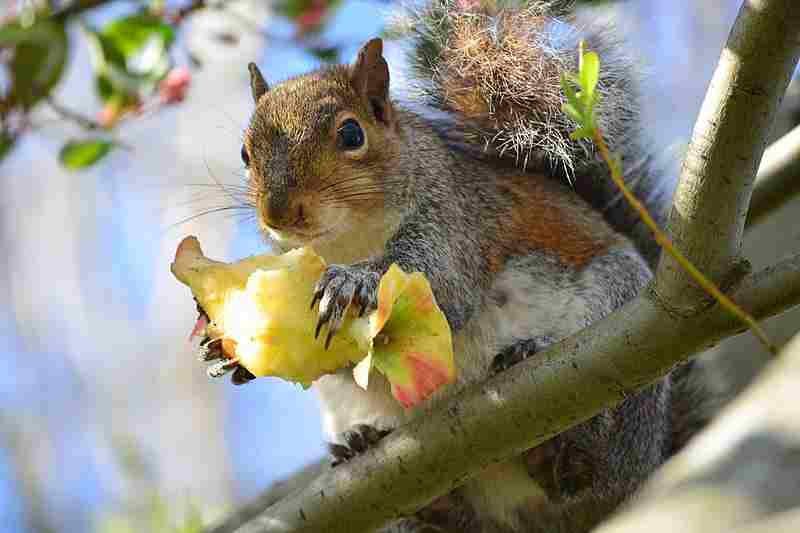
3. They Do Not Always Have a Stable or Abundant Supply of Preferred Food Sources
One of the reasons why squirrels are considered omnivores is because they do not always have a stable or abundant supply of preferred food sources. Fruits and nuts, which are a significant part of their diet, are usually seasonal. This means that squirrels cannot rely solely on plant matter for sustenance throughout the year. They need to adapt their diet to the changing availability of food sources.
For example; during the summer and fall, when fruits and nuts are abundant, squirrels have a plentiful supply of plant-based food. They can feast on berries, acorns, and other tree fruits. However, as winter approaches, these food sources become scarce, and squirrels need to find alternative sources of nutrition.
In order to survive during lean periods, squirrels expand their diet to include animal matter. They may consume insects, bird eggs, or even small vertebrates. By incorporating animal protein into their diet, squirrels can supplement their nutritional needs when plant-based food is scarce.
This ability to switch between plant and animal matter depending on availability is a key characteristic of omnivorous behavior. Squirrels are opportunistic feeders, taking advantage of whatever food sources are available to them. Their adaptability and flexibility in their feeding habits allow them to survive in environments where food resources may be limited or unpredictable.
Therefore, the lack of a stable or abundant supply of preferred food sources is another reason why squirrels are considered omnivores. They must adapt their diet to the changing seasons and availability of food, incorporating both plant and animal matter to ensure their survival.
Are Squirrels Carnivores?
Squirrels are not carnivores because they do not exclusively or solely rely on animal biomass as their food source. Rather, they are opportunistic omnivores whose main dietary component is plant matter
Reasons Why Squirrels are Not Carnivores
1. They Do Not Solely Rely on Animal Biomass for Sustenance
One of the key reasons why squirrels are not classified as carnivores is that they do not solely rely on animal biomass for their sustenance. While it is true that squirrels do consume animal matter, such as insects, bird eggs, and even small vertebrates on occasion, their diet is not predominantly meat-based.
Squirrels are known to be opportunistic feeders, meaning they take advantage of whatever food sources are available to them. Their diet primarily consists of plant matter, including nuts, seeds, fruits, and tree buds. These plant-based foods provide them with the necessary nutrients, energy, and fiber they need to survive and thrive.
While squirrels do consume animal matter, it is usually in small quantities and serves as a supplement to their plant-based diet. They may opportunistically hunt for insects or raid bird nests for eggs, but these instances are not their primary source of sustenance. Squirrels have evolved to be adaptable and resourceful, allowing them to survive in various environments with different food availability.
In fact, the consumption of animal matter by squirrels is often influenced by the availability of their preferred plant-based food sources. For example, during times of scarcity or when their preferred food sources are not abundant, squirrels may resort to consuming more animal matter to meet their nutritional needs. This flexibility in their diet is a testament to their ability to adapt to changing circumstances and ensure their survival.
It is important to note that while squirrels do consume animal matter, their impact on the food chain as predators is relatively small compared to major carnivores like felines and canids. Squirrels are not at the top of the food chain and do not play a significant role in controlling populations of other animals. Their consumption of animal matter is more opportunistic and does not have a substantial predatory impact on the ecosystem.
2. Squirrels Have a Very Small Predatory Impact On the Food Chain
Squirrels have a very small predatory impact on the food chain, unlike major carnivores like felines and canids. This is one of the reasons why squirrels are not classified as carnivores. While squirrels do consume animal matter, their consumption is opportunistic and does not have a substantial predatory impact on the ecosystem.
Unlike large carnivores that play a significant role in controlling populations of other animals, squirrels have a minimal impact on the food chain. They are not at the top of the food chain and do not have the same predatory capabilities as felines or canids. Squirrels primarily rely on plant-based foods for their sustenance, with animal matter serving as a supplement to their diet.
Squirrels’ consumption of animal matter is usually in small quantities and is influenced by the availability of their preferred plant-based food sources. They may opportunistically hunt for insects or raid bird nests for eggs, but these instances are not their primary source of sustenance. Squirrels have evolved to be adaptable and resourceful, allowing them to survive in various environments with different food availability.
The small predatory impact of squirrels can be attributed to their size and feeding behavior. Squirrels are relatively small animals compared to major carnivores, which limits their ability to prey on larger animals. They are more suited to foraging for plant-based foods and consuming smaller organisms like insects and bird eggs.
Furthermore, squirrels’ feeding behavior is not focused on actively hunting and preying on other animals. They are opportunistic feeders, meaning they take advantage of whatever food sources are available to them. Their diet primarily consists of plant matter, including nuts, seeds, fruits, and tree buds. These plant-based foods provide them with the necessary nutrients, energy, and fiber they need to survive and thrive.
Do Squirrels Eat Meat?
Squirrels are primarily known for their affinity for plant-based foods, but they do consume meat in various forms as well. While their diet is predominantly herbivorous, squirrels have been observed consuming the flesh of smaller organisms such as amphibians and some reptiles, including small snakes and lizards. This opportunistic behavior allows them to supplement their diet with animal matter when the opportunity arises.
One of the reasons squirrels consume meat is for its nutritional value. Meat provides essential nutrients, such as protein and fats, that are necessary for their overall health and well-being. While squirrels can obtain these nutrients from plant-based sources, consuming meat allows them to diversify their diet and ensure they are meeting their nutritional needs.
It is important to note that not all squirrel species consume meat to the same extent. For example, the Eastern grey squirrel, a common species in North America, has been observed consuming carrion occasionally. Carrion refers to the decaying flesh of dead animals. While this behavior is not common among all squirrel species, it highlights their adaptability and opportunistic feeding behavior.
The consumption of carrion serves as a dietary supplement for squirrels, providing them with additional nutrients and energy. It is believed that squirrels may consume carrion when their preferred plant-based food sources are scarce or when they need to meet specific nutritional requirements. However, it is important to emphasize that carrion is not a primary food source for squirrels and is consumed only when other options are limited.
In addition to carrion, squirrels may also consume the eggs of birds. They are known to raid bird nests and feed on the eggs as a source of protein. This behavior is more common during the breeding season when birds are actively laying eggs. By consuming bird eggs, squirrels are able to obtain a concentrated source of nutrients that can support their reproductive needs.
It is worth mentioning that the consumption of meat by squirrels is not a predatory behavior in the same sense as carnivores. Squirrels do not actively hunt or prey on other animals as their primary source of sustenance. Instead, their meat consumption is opportunistic and serves as a supplement to their predominantly plant-based diet.
Therefore, while squirrels are primarily herbivores, they do consume meat in various forms. This includes the flesh of smaller organisms like amphibians and some reptiles, as well as carrion and bird eggs. However, it is important to note that meat is not a primary food source for squirrels and is consumed opportunistically when other food options are limited.
i). Prey as a Source of Meat for Squirrels
In addition to consuming carrion and bird eggs, squirrels also rely on prey as a source of meat. While their diet is primarily herbivorous, squirrels have been observed hunting and consuming smaller organisms, including amphibians and reptiles. This opportunistic behavior allows them to supplement their diet with animal matter when the opportunity arises.
Squirrels are known for their agility and quick movements, which enable them to catch small prey. They have been observed hunting frogs, toads, and small lizards. These small organisms provide squirrels with a source of protein and other essential nutrients that are necessary for their overall health and well-being.
When it comes to hunting prey, squirrels exhibit a stealthy approach. They carefully stalk their prey, using their keen senses and nimble movements to their advantage. Once they are within striking distance, squirrels pounce on their prey with lightning speed, using their sharp teeth and claws to secure their meal.
It is important to note that not all squirrel species engage in hunting and consuming prey to the same extent. Some species, such as the fox squirrel, have been observed exhibiting more predatory behavior compared to others. These squirrels have been known to actively hunt and consume a wider range of prey, including small birds and rodents.
The consumption of prey serves as a valuable source of meat for squirrels, providing them with additional nutrients and energy. It allows them to diversify their diet and ensure they are meeting their nutritional needs. This is particularly important during certain times of the year when their preferred plant-based food sources may be scarce or less abundant.
While the hunting and consumption of prey is not the primary feeding behavior of squirrels, it highlights their adaptability and opportunistic nature. Squirrels are able to switch between herbivorous and carnivorous behaviors depending on the availability of food sources. This flexibility allows them to survive and thrive in various environments and adapt to changing conditions.
ii). Carrion as a Source of Meat for Squirrels
Carrion, which refers to the decaying flesh of dead animals, can also serve as a source of meat for squirrels. While squirrels are primarily herbivorous, they have been observed scavenging and consuming carrion when it is available. This opportunistic behavior allows them to obtain additional nutrients and energy from animal matter.
Squirrels are known for their resourcefulness and adaptability when it comes to finding food sources. When they come across carrion, such as the remains of other animals, they will not hesitate to take advantage of this readily available food source. This behavior is particularly common during times when their preferred plant-based food sources may be scarce or less abundant.
When squirrels consume carrion, they are able to obtain essential nutrients, such as protein, that are necessary for their overall health and well-being. This helps to supplement their primarily herbivorous diet and ensures that they are meeting their nutritional needs. By incorporating carrion into their diet, squirrels are able to diversify their food sources and increase their chances of survival.
It is important to note that squirrels are not the primary consumers of carrion in most ecosystems. They are opportunistic feeders and will scavenge on carrion when it is available, but they do not rely solely on this food source. Squirrels are more likely to consume carrion when it is easily accessible and when their preferred plant-based food sources are limited.
When squirrels come across carrion, they will use their sharp teeth and claws to tear off small pieces of flesh. They may also use their paws to hold the carrion in place while they feed. Squirrels are efficient at extracting the nutrients they need from carrion, and they will continue to feed until they are satisfied.
While carrion serves as a source of meat for squirrels, it is important to note that they do not actively hunt or kill animals for this purpose. Squirrels are primarily scavengers when it comes to carrion, feeding on the remains of animals that have already died. This behavior helps to minimize their impact on the food chain and ensures that they are not disrupting the natural balance of ecosystems.
Are Squirrels Herbivores?
Most squirrels are not strictly herbivores, but rather are omnivores with a significant amount of plant matter in their diet. This is due to their opportunistic feeding behavior and the fact that they do not solely rely on plant food for sustenance. While squirrels primarily consume plant material, they also incorporate other food sources into their diet to meet their nutritional needs.
One reason why squirrels are not herbivores is their opportunistic nature. Squirrels are known for their ability to adapt to different environments and food availability. They have a diverse diet that includes nuts, seeds, fruits, and vegetables. However, they are not limited to these food sources alone. Squirrels are opportunistic feeders, meaning they will take advantage of any available food source, including insects, eggs, and even small vertebrates. This flexibility in their diet allows them to survive in various habitats and adapt to changing conditions.
Another reason why squirrels are not herbivores is that their nutritional needs are hardly met by plant food alone. While plants provide essential nutrients such as carbohydrates and fiber, they may lack certain nutrients that are crucial for squirrels’ overall health and well-being.
For example, squirrels require a sufficient amount of protein for muscle development and maintenance. Plant-based protein sources may not always provide the necessary amino acids in the right proportions. By incorporating animal matter into their diet, squirrels can obtain the essential amino acids they need for optimal growth and reproduction.
Squirrels also consume animal matter in the form of insects and small vertebrates. Insects, such as beetles and caterpillars, are a rich source of protein and fats. Squirrels may actively hunt for insects or opportunistically feed on them when they come across them. Small vertebrates, such as birds’ eggs or nestlings, may also be consumed by squirrels when the opportunity arises. These additional food sources provide squirrels with the necessary nutrients to thrive in their environment.
It is important to note that while squirrels are omnivores, their consumption of animal matter is relatively small compared to their plant-based diet. The majority of their diet consists of plant material, such as nuts, seeds, fruits, and vegetables. These food sources provide squirrels with the energy and nutrients they need to survive and reproduce.
Reasons Why Squirrels are Not Herbivores
1. They are Opportunistic
One of the reasons why squirrels are not herbivores is because they are opportunistic eaters. This means that squirrels will consume alternative food sources in addition to plants. While they primarily rely on plant matter for sustenance, they are not limited to a strictly herbivorous diet.
Squirrels have been observed to exhibit a wide range of feeding behaviors, taking advantage of whatever food sources are available to them. This includes consuming insects, eggs, and even small vertebrates when the opportunity arises. By being opportunistic feeders, squirrels are able to adapt to different environments and survive in various conditions.
In urban areas, for example, squirrels may scavenge for food in trash cans or feed on discarded human food. They are known to raid bird feeders and steal seeds or nuts. This ability to adapt their diet to include a variety of food sources allows squirrels to thrive in diverse habitats.
Furthermore, squirrels are known to cache food for future consumption. They collect and store nuts, seeds, and other plant material in hidden locations, creating a reserve of food to sustain them during times when their preferred food sources are scarce. This behavior further highlights their opportunistic nature and their ability to make the most of available resources.
While squirrels primarily consume plant matter, their opportunistic feeding behavior sets them apart from strict herbivores. They have the flexibility to incorporate other food sources into their diet when necessary, ensuring their survival in different environments and circumstances.
Therefore, squirrels are not herbivores because they are opportunistic eaters. They have the ability to consume alternative food sources in addition to plants, allowing them to adapt to different environments and survive in various conditions. Their opportunistic feeding behavior, along with their ability to cache food, sets them apart from strict herbivores and highlights their adaptability and resourcefulness. So, while squirrels may primarily rely on plant matter, they are not limited to a strictly herbivorous diet.
2. Squirrels’ Nutritional Needs are Hardly Met by Plant Food Alone
One of the reasons why squirrels are not herbivores is because their nutritional needs are hardly met by plant food alone. While squirrels primarily consume plant matter, their diet requires a diverse range of nutrients that cannot be solely obtained from plants.
Plant food, such as nuts, seeds, fruits, and vegetables, forms the majority of a squirrel’s diet. These food sources provide essential carbohydrates, fats, and some proteins. However, squirrels also require other nutrients, such as vitamins, minerals, and certain types of proteins, that are not abundantly found in plant matter.
To meet their nutritional needs, squirrels supplement their diet with other food sources. They are opportunistic feeders, meaning they will consume alternative food sources when available. This includes insects, eggs, and even small vertebrates. By incorporating these additional food sources into their diet, squirrels are able to obtain the necessary nutrients that are lacking in plant food alone.
Insects, for example, are a rich source of protein and essential amino acids. Squirrels may consume insects such as caterpillars, beetles, and grasshoppers to fulfill their protein requirements. Eggs, particularly bird eggs, are also a valuable source of protein and other nutrients. Squirrels have been observed raiding bird nests to feed on eggs when the opportunity arises.
By diversifying their diet, squirrels are able to obtain a wider range of nutrients that are essential for their overall health and well-being. This flexibility in their feeding behavior allows them to adapt to different environments and ensure their nutritional needs are met.
Are Squirrels Herbivores or Omnivores?
Squirrels are omnivores, meaning they have a diverse diet that includes both plant and animal matter. As discussed earlier, squirrels primarily consume plant food such as nuts, seeds, fruits, and vegetables. These plant sources provide essential carbohydrates, fats, and some proteins that are necessary for their survival. However, squirrels also supplement their diet with other food sources to meet their nutritional needs.
One of the reasons why squirrels are considered omnivores is their opportunistic feeding behavior. They are not solely reliant on plant biomass for sustenance. When alternative food sources are available, squirrels will consume them to obtain the necessary nutrients. This flexibility in their diet allows them to adapt to different environments and ensure their nutritional needs are met.
In addition to plant matter, squirrels also consume animal matter as part of their diet. They may consume insects such as caterpillars, beetles, and grasshoppers, which are rich sources of protein and essential amino acids. Squirrels have been observed foraging for insects in trees and on the ground. They may also raid bird nests to feed on eggs, which provide valuable protein and other nutrients.
While squirrels do consume animal matter, it is important to note that their predatory impact on the food chain is relatively small. They do not have a significant influence on the population dynamics of their prey species. Squirrels primarily rely on plant food sources, and their consumption of animal matter is opportunistic rather than a major component of their diet.
Is a Squirrel a Herbivore, Carnivore or Omnivore?
Squirrels are neither strictly carnivores nor herbivores, but rather fall into the category of omnivores. This means that squirrels have a diverse diet that includes both plant and animal matter. They do not rely solely on one type of food source, but instead, they have the ability to adapt and consume a variety of foods to meet their nutritional needs.
One of the defining characteristics of an omnivore is its ability to consume both plant and animal matter. Squirrels exhibit this behavior by consuming a wide range of plant-based foods such as nuts, seeds, fruits, and vegetables. These plant sources provide essential carbohydrates, fats, and some proteins that are necessary for their survival. Squirrels are known for their impressive ability to gather and store nuts, which serve as a valuable food source during the winter months when other food options may be scarce.
However, squirrels do not solely rely on plant biomass for sustenance. They are opportunistic feeders, meaning they take advantage of any available food sources to meet their nutritional needs. When alternative food sources are present, squirrels will consume them to obtain the necessary nutrients. This flexibility in their diet allows them to adapt to different environments and ensure their survival.
In addition to plant matter, squirrels also consume animal matter as part of their diet. While they are not considered carnivores, squirrels do incorporate insects into their diet. They may consume insects such as caterpillars, beetles, and grasshoppers, which are rich sources of protein and essential amino acids. Squirrels have been observed foraging for insects in trees and on the ground, showcasing their ability to diversify their food sources.
Another interesting behavior of squirrels is their occasional consumption of eggs. Squirrels may raid bird nests to feed on eggs, which provide valuable protein and other nutrients. This opportunistic behavior allows squirrels to supplement their diet with animal matter when it is available. However, it is important to note that their consumption of animal matter is not a major component of their diet and does not have a significant impact on the population dynamics of their prey species.
Therefore, squirrels are omnivores, neither strictly carnivores nor herbivores. They have the ability to consume both plant and animal matter to meet their nutritional needs. While they primarily rely on plant food sources, their opportunistic feeding behavior allows them to adapt to different environments and ensure their survival.
FAQs
1. Is Squirrel a Consumer or Herbivore?
Squirrels are primary consumers, but they are not considered herbivores in most cases. They do consume plant matter, but their diet is not solely reliant on plants. Squirrels are known for their opportunistic feeding behavior, which means they will eat whatever food sources are available to them.
Squirrels have a diverse diet that includes nuts, seeds, fruits, and vegetables. They are particularly fond of acorns, which they gather and store for the winter months. However, squirrels are not limited to plant-based foods. They are also known to consume insects, bird eggs, and even small vertebrates like mice or birds.
While squirrels do eat some animal matter, their consumption of it is relatively small compared to their overall diet. They do not rely on animal biomass for sustenance like true carnivores do. Instead, squirrels primarily rely on plant-based food sources to meet their nutritional needs.
It is important to note that squirrels are not significant predators in the food chain. Their small predatory impact means that they do not have a substantial influence on the population dynamics of other species. They are opportunistic feeders, taking advantage of available food sources rather than actively hunting or preying on other animals.
2. Will a Squirrel Eat a Chicken?
Squirrels have been known to eat chickens, especially small or young ones. However, it is important to note that this behavior is relatively rare. Squirrels are generally not aggressive predators towards chickens, and their natural diet consists mainly of plant matter.
In some cases, squirrels may be attracted to chicken feed that is left out or easily accessible. They are opportunistic feeders and will take advantage of any available food source. This includes chicken feed that may be scattered or left unattended.
However, it is unlikely for squirrels to actively hunt or prey on adult chickens. Chickens are typically larger and capable of defending themselves against squirrels. Additionally, chickens often exhibit protective and cooperative behavior, which can deter squirrels from approaching them.
It is important for chicken owners to take precautions to prevent squirrel-chicken interactions. This can include securing chicken feed in containers that are inaccessible to squirrels, as well as ensuring that chicken coops are properly sealed to prevent squirrels from entering.
3. Do Squirrels Carry Diseases?
Squirrels are known carriers of diseases such as typhus, ringworm, and salmonelosis. These diseases are caused by pathogenic organisms that can be transmitted to other organisms through various forms of contact, including bites and physical touch.
One of the diseases that squirrels can carry is typhus. Typhus is a bacterial infection that can be transmitted to humans through flea bites. Squirrels can harbor fleas, and if an infected flea bites a human, they can contract typhus. It is important to note that the risk of contracting typhus from squirrels is relatively low, as long as proper precautions are taken to avoid flea bites.
Another disease that squirrels can carry is ringworm. Ringworm is a fungal infection that can be transmitted through direct contact with an infected squirrel or its environment. It can cause skin rashes and itching in humans. It is important to practice good hygiene and avoid direct contact with squirrels or their nesting areas to reduce the risk of contracting ringworm.
Salmonelosis is another disease that can be transmitted by squirrels. Salmonelosis is a bacterial infection that can cause symptoms such as diarrhea, fever, and abdominal pain in humans. Squirrels can carry the bacteria in their feces, and if humans come into contact with contaminated surfaces or food, they can become infected. It is important to wash hands thoroughly after handling squirrels or cleaning up their droppings to prevent the spread of salmonelosis.
While squirrels can carry diseases, it is important to note that the risk of transmission to humans is generally low. By practicing good hygiene, avoiding direct contact with squirrels, and taking precautions to prevent flea infestations, the risk of contracting diseases from squirrels can be minimized. For concerns about squirrel-related diseases, it is always best to consult with a healthcare professional for guidance and advice.
4. Are Squirrels Cannibals?
Yes, squirrels can exhibit cannibalistic behavior. Species like red squirrels and grey squirrels have been observed preying on other vulnerable squirrels, including the young. This behavior has been the subject of elaborate studies, and researchers have identified various evolutionary stimuli that may contribute to this behavior.
Cannibalism in squirrels is often driven by factors such as competition for resources and territorial disputes. When resources are scarce or when populations are dense, squirrels may resort to cannibalism as a means of reducing competition and ensuring their own survival. By eliminating weaker individuals, squirrels can increase their own chances of accessing limited food sources and nesting sites.
In some cases, cannibalism may also be a response to environmental stressors. For example, during periods of food scarcity or harsh weather conditions, squirrels may turn to cannibalism as a desperate measure to obtain sustenance. By consuming their own kind, squirrels can obtain valuable nutrients and energy that may be lacking in their usual diet.
It is important to note that cannibalism is not a common behavior among all squirrel species. While red squirrels and grey squirrels have been observed engaging in cannibalistic behavior, it is not a universal trait among all squirrel populations. Factors such as habitat, population density, and availability of alternative food sources can influence the likelihood of cannibalism occurring.
5. What Food Do Squirrels Like?
Squirrels have a diverse diet that includes a variety of foods. While they are primarily herbivores, they do consume a range of plant and animal matter.
Some of the foods that squirrels like include seeds, nuts, buds, bark, roots, bulbs, fruits, foliage, and even fungi like mushrooms. These food sources provide squirrels with the necessary nutrients and energy to survive and thrive in their environments.
Seeds and nuts are among the most preferred food sources for squirrels. They have strong jaws and sharp teeth that allow them to crack open the shells and access the nutritious contents inside. Squirrels are known for their ability to hoard and store these food items for future consumption, especially during times when food is scarce.
Buds and bark are also important food sources for squirrels, particularly during the spring when new growth is abundant. Squirrels will nibble on the tender buds and bark of trees, extracting the nutrients they need. This behavior can sometimes cause damage to trees, but it is a natural part of the squirrel’s feeding behavior.
Roots and bulbs are another food source that squirrels enjoy. They will dig into the ground to find these underground treasures and consume them for their nutritional value. Fruits, such as berries and apples, are also a favorite among squirrels. They will often climb trees or scavenge on the ground to find these sweet treats.
Foliage, including leaves and tender shoots, is another important part of a squirrel’s diet. They will consume these plant parts to supplement their nutritional needs. Additionally, squirrels have been known to eat certain types of fungi, such as mushrooms. While not a staple in their diet, squirrels may consume fungi when other food sources are limited.
Although squirrels are primarily herbivores, they do occasionally prey on insects, small reptiles, and amphibians. However, these animal sources are not their most preferred food sources and are consumed less frequently. Squirrels are opportunistic feeders, meaning they will take advantage of any available food source when necessary.
6. Do Squirrels Eat Dead Meat?
Squirrels are known to consume dead meat, but it is not a common occurrence in their diet. They are flexible consumers and have a preference for fresh fruits, vegetables, and nuts. However, when presented with the opportunity, squirrels will eat carrion, which refers to the decaying flesh of dead animals.
Carrion serves as a source of meat for squirrels when other food sources are scarce or unavailable. It provides them with an additional protein source that can help meet their nutritional needs. Squirrels have been observed scavenging on small dead animals, such as birds or rodents, that they come across in their environment.
While squirrels may eat dead meat, it is important to note that this behavior is not very common. Their diet primarily consists of plant matter, and they rely on fresh fruits, vegetables, and nuts as their main sources of sustenance. These food items provide them with the necessary nutrients and energy to thrive.
Squirrels have adapted to be opportunistic feeders, meaning they will take advantage of any available food source when necessary. This includes carrion, which can provide them with a temporary source of meat. However, it is not a significant part of their diet and is consumed less frequently compared to their preferred plant-based foods.
8. Do Squirrels Make Burrows?
Squirrels are known for their ability to make burrows, especially ground squirrels. While not all species of arboreal squirrels make burrows, some do create burrows in tree trunks, rocks, and soil. These burrows serve as a form of protection from predators and harsh elements, ensuring their safety and survival.
Ground squirrels, such as the prairie dog, are particularly well-known for their burrowing behavior. They dig complex networks of tunnels underground, creating intricate burrow systems. These burrows provide them with shelter, a safe place to raise their young, and protection from predators. Ground squirrel burrows can have multiple entrances and chambers, allowing them to escape quickly if threatened.
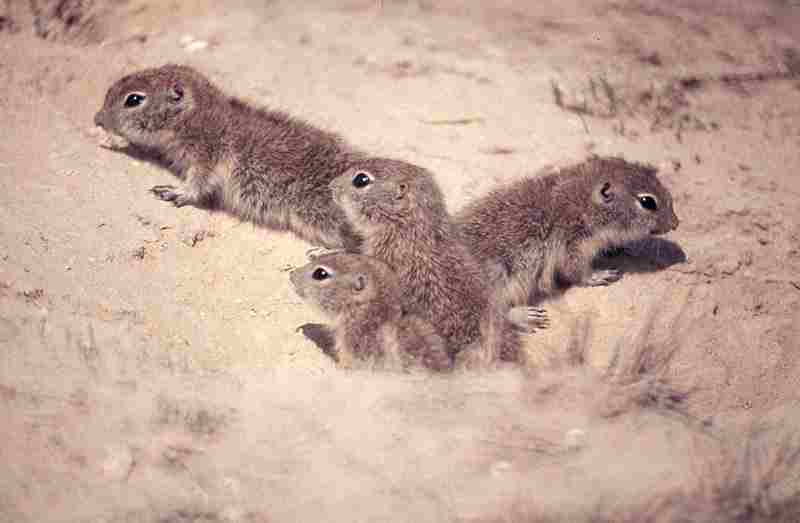
Arboreal squirrels, on the other hand, are more likely to create burrows in tree trunks. These burrows are often located in hollowed-out areas or crevices in the tree, providing them with a secure nesting spot. Tree burrows offer protection from predators and adverse weather conditions, such as rain or extreme temperatures.
While not all squirrels make burrows, some species, especially ground squirrels, rely on burrows as a vital part of their survival strategy. These burrows serve as a safe haven, providing them with protection and shelter from predators and the elements. Whether underground or in tree trunks, burrows play a crucial role in the lives of squirrels, allowing them to thrive in their environments.
Conclusion
* Squirrels are omnivores because they consume both plant and animal matter, are opportunistic feeders, and do not always have a stable or abundant supply of preferred food sources.
* While squirrels are not carnivores, they do occasionally eat meat. Prey, such as insects and small birds, can serve as a source of meat for squirrels. They may also scavenge carrion for meat.
* Squirrels are not herbivores either, as they are opportunistic and their nutritional needs are not fully met by plant food alone. They require a varied diet to thrive.
